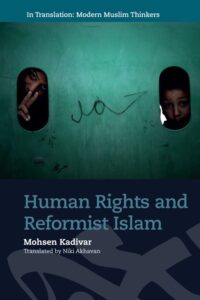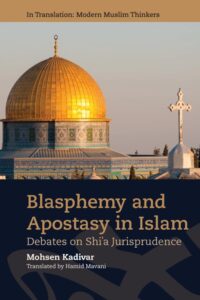
Human Rights and Reformist Islam
Human Rights and Reformist Islam translates the influential collection Haqq al-nas, and critiques traditional Islamic approaches to the question of compatibility between human rights and Islam, and argues instead for their reconciliation from the perspective of a reformist Islam. The book focuses on six controversial case studies: religious discrimination; gender discrimination; slavery; freedom of religion; punishment of apostasy; and arbitrary or harsh punishments. Critically compares Kadivar’s approach to Islam and human rights with those of five leading contemporary scholars: Mahmoud Taha, Abdullahi an-Na’im, Ann Mayer, Mohammad Shabestari and Abdulaziz Sachedina.


